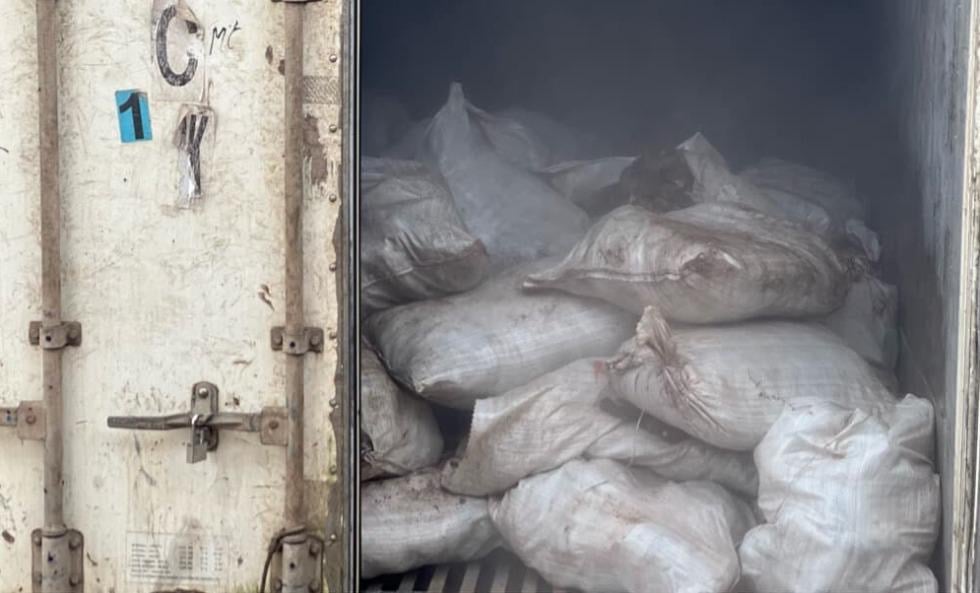The many sins of Nigeria's bonded terminals
bonded terminal is a secure facility, typically near a port or airport, where imported goods can be stored under Customs supervision without immediate payment of duties and taxes. These goods remain in the terminal until they are either re-exported or cleared for domestic use, at which point the necessary duties and taxes are paid. Essentially, it’s a designated area for temporary storage of imported goods, allowing businesses to defer duty payments.

Bonded terminals operate under the strict supervision of the Nigeria Customs Service.
Bonded terminals are strategically located near major points of entry and exit for international trade.
The primary benefit is the ability to defer duty payments, which can be a significant advantage for businesses with large import volumes or those facing temporary cash flow challenges. But this important and innovative tool for trade facilitation introduced several years ago by the Nigeria Customs Service is gradually being turned into a cluster of unwholesome practices by some operators and owners of these terminals .
Customs authorities are almost on a daily basis being inaudated with reports of sharp practices which tend to undermine the basis of their establishment. About a fortnight ago, the Apapa Area Controller of the Nigeria Customs Service, Comptroller Babatunde Olomu, weilded the big stick when on the orders of the Comptroller General of Customs, Bashir Adewale Adeniyi, he shut down three such terminals for serious violations of the extant laws establishing them.
Olomu who did not disclose the names of the affected bonded terminals, however, said seven containers of fake pharmaceuticals, expired magarine, codeine, second hand clothing , animal skill were seized at the terminals.
While emphasising zero tolerance for sharp practices, he disclosed that one of the terminals was already facing prosecution while further investigations is being carried out on the remaining two. Meanwhile, the Nigeria Customs Service has with immediate effect banned bonded terminals from handling pharmaceutical imports in their terminals. Customs Comptroller General, Wale Adeniyi, who gave the directive in Lagos said the order had become imperative in view of the unwholesome influx of unregistered and sub-standard drugs through bonded terminals and that henceforth only Apapa, PTML, Onne and Airport Commands of service are authorised to handle pharmaceutical imports . It would be recalled that bonded terminals have notoriously become the flash points for all manner of shady deals including smuggling, under invoicing and under valuation of imported goods.
Bonded terminals in Nigeria have faced numerous criticisms regarding their operations, including allegations of poor facilities, illegal charges, and inadequate handling of goods. These issues contributed to congestion at seaports and hindered efficient cargo clearance.
Here’s a breakdown of the main issues:
Many bonded terminals are criticized for lacking essential cargo handling equipment, proper infrastructure, and conducive environments for operations.
Some terminals were described as being more like bonded warehouses than terminals, lacking the capacity to handle the volume and complexity of goods.
This deficiency in facilities lead to delays in cargo examination and clearance, increasing costs for importers and freight forwarders.
Bonded terminal operators are also accused of imposing unauthorized demurrage, storage, and transfer charges on importers and freight forwarders.
Some terminals suspended cargo examination when it rained, further increasing demurrage costs due to delays.
There were reports of terminals charging for services they did not provide or for responsibilities that were not theirs.
Bonded terminals are criticized for not conducting thorough examinations of goods, particularly pharmaceutical products, which led to the influx of unregistered and expired pharmaceuticals.
This lack of proper examination posed significant risks to public health and safety, as highlighted by the seizure of unregistered drugs and expired food products.
The Nigerian Customs Service (NCS) also expressed concerns about the inadequate examination of goods at bonded terminals.
The inefficiencies of bonded terminals contributed to congestion at the main seaports, as goods were delayed in transit and examination processes.
The lack of capacity and proper handling equipment at bonded terminals meant that they were not effectively serving as off-dock terminals to relieve pressure on the main ports.
Some bonded terminals are accused of operating without proper permits and legal documentation, hiding behind claims of federal approval.
There were also reports of informal arrangements and a lack of standard operating procedures (SOPs) between seaport terminals and bonded terminals.
The inefficiencies of bonded terminals increased the cost of doing business for importers and freight forwarders, impacting the overall economy.
The delays and high costs associated with bonded terminals discouraged investment and made Nigeria a less attractive destination for trade.
Recommended Articles
Customs seize N1.7b goods in one month, arrest nine suspects

The Nation Newspaper Customs seize N1.7b goods in one month, arrest nine suspects
FAAN, Customs collaborate to remove Nigeria from grey list

The Federal Airport Authority of Nigeria has partnered with the Nigeria Customs Service to remove the country from the F...
Customs, NAFDAC strengthen ties to tackle counterfeit drugs

The Nigerian Customs Service (NCS) and the National Agency for Food and Drug Administration and Control (NAFDAC) have
EXTRA: Customs intercepts container loaded with 10,603 male donkey genitals | TheCable

The Nigeria Customs Service (NCS) says it has intercepted a container-load of 10,603 male donkey genitals.
Nigeria Customs intercepts 10,300 donkey genitals

The Nigeria Customs Service, NCS, has intercepted a container loaded with 10,300 donkey genitals along the Kaduna-Abuja ...
You may also like...
Diddy's Legal Troubles & Racketeering Trial

Music mogul Sean 'Diddy' Combs was acquitted of sex trafficking and racketeering charges but convicted on transportation...
Thomas Partey Faces Rape & Sexual Assault Charges

Former Arsenal midfielder Thomas Partey has been formally charged with multiple counts of rape and sexual assault by UK ...
Nigeria Universities Changes Admission Policies

JAMB has clarified its admission policies, rectifying a student's status, reiterating the necessity of its Central Admis...
Ghana's Economic Reforms & Gold Sector Initiatives

Ghana is undertaking a comprehensive economic overhaul with President John Dramani Mahama's 24-Hour Economy and Accelera...
WAFCON 2024 African Women's Football Tournament

The 2024 Women's Africa Cup of Nations opened with thrilling matches, seeing Nigeria's Super Falcons secure a dominant 3...
Emergence & Dynamics of Nigeria's ADC Coalition

A new opposition coalition, led by the African Democratic Congress (ADC), is emerging to challenge President Bola Ahmed ...
Demise of Olubadan of Ibadanland
Oba Owolabi Olakulehin, the 43rd Olubadan of Ibadanland, has died at 90, concluding a life of distinguished service in t...
Death of Nigerian Goalkeeping Legend Peter Rufai

Nigerian football mourns the death of legendary Super Eagles goalkeeper Peter Rufai, who passed away at 61. Known as 'Do...